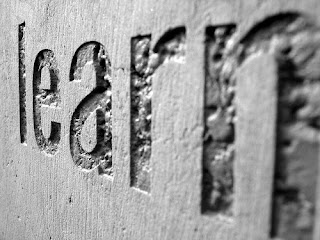I am an educator.
No matter what my job is now or what it may become in the future, my job is an educator. My passion is helping students grow up, learn and understand, and find their own passions in life, whatever they may be.
 Since jumping to the "other side" of education, I have not been that intimately familiar with items such as the Common Core (though in our district, we have talking about it for years) and the new evaluation system in New Jersey, called AchieveNJ. I knew they were both coming, but as a former Social Studies teacher, we were usually one of the last involved. I have been very intimate with PARCC, though.
Since jumping to the "other side" of education, I have not been that intimately familiar with items such as the Common Core (though in our district, we have talking about it for years) and the new evaluation system in New Jersey, called AchieveNJ. I knew they were both coming, but as a former Social Studies teacher, we were usually one of the last involved. I have been very intimate with PARCC, though.As a casual reader, or for those with their heads in the sand, most states around the USA are going through a paradigm shift in how the evaluate students and how they, therefore, evaluate teachers.
For a basic understanding, here is what all three are:
Common Core (taken from their website)
The Common Core State Standards Initiative is a state-led effort that established a single set of clear educational standards for kindergarten through 12th grade in English language arts and mathematics that states voluntarily adopt. The standards are designed to ensure that students graduating from high school are prepared to enter credit bearing entry courses in two or four year college programs or enter the workforce. The standards are clear and concise to ensure that parents, teachers, and students have a clear understanding of the expectations in reading, writing, speaking and listening, language and mathematics in school.
AchieveNJ (taken from their website)
There are many differences between AchieveNJ and the old evaluation system. After two years of piloting in 30 districts that contain over 14,000 educators, AchieveNJ has been created to better align educator evaluation with best practices that lead to improved student outcomes. Our new AchieveNJ evaluation and support system is structured around several guiding principles; each one describes improvements from the previous system.
Educator effectiveness can and should be measured to ensure our students have the best teachers in the classroom.
Evaluations should always be based on multiple measures that include both learning outcomes and effective practice.
Tenure and other forms of recognition should be based on effectiveness.
PARCC (taken from their website)
The Partnership for Assessment of Readiness for College and Careers (PARCC) is a consortium of 22 states plus the U.S. Virgin Islands working together to develop a common set of K-12 assessments in English and math anchored in what it takes to be ready for college and careers. These new K-12 assessments will build a pathway to college and career readiness by the end of high school, mark students’ progress toward this goal from 3rd grade up, and provide teachers with timely information to inform instruction and provide student support. The PARCC assessments will be ready for states to administer during the 2014-15 school year.
The PARCC Vision
Builds a pathway to college and career readiness for all students,
Creates high-quality assessments that measure the full range of the Common Core State Standards,
Supports educators in the classroom,
Makes better use of technology in assessments, and
Advances accountability at all levels.
You have all that?
All three about talking about college and career readiness and accountability which on the surface, no one can really complain or go against. OF COURSE we want to prepare our students to become life long learners and leaders in this world by going off to college or into the work force. And of course, we want to make sure that our teachers help our students get there.
So, how is the NJ DOE trying to rally us around? ... just wait for part II.



No comments:
Post a Comment